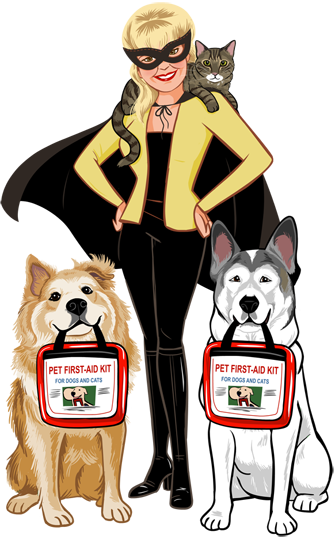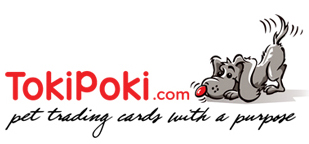
As we turn the corner into autumn and then winter, many humans experience a mood shift partially due to plunging temperatures, but also because as daylight hours decrease, the brain produces more melatonin and less serotonin. This chemical change manifests in many as low energy, loss of appetite and feelings of sadness that sometimes remain until the sunnier days of spring appear. Feeling sluggish and wanting to do nothing more than hibernate indoors is known as Seasonal Affective Disorder (SAD). But do these seasonal changes also affect our pets?
“Maybe, but no one knows for sure,” Steve Dale, a certified animal behavior consultant, says. Since dogs and humans share much of the same brain chemistry, it is possible they could get SAD too but there really is no objective way to diagnose this condition in pets. Most studies done on the topic rely on human perception of how pets respond to seasonal changes as opposed to any scientific evidence.
Like their wilder cousins, our pets may be slowing down to store energy and create fat reserves which works well for bears, penguins, and other creatures. Maybe since we are providing our furry pals less opportunities to play outside than we do in the summer, “they may be bored due to lack of physical and mental stimulation,” says Dale, or they may be sensing our mood and are mimicking human emotions. A study performed by a team of animal behavior experts and psychologists from the University of Lincoln, UK, and University of Sao Paulo, Brazil, shows that dogs have the ability to integrate two different pieces of sensory information into a coherent perception of emotion in both humans and dogs. For example, they can observe both the facial expressions and vocalizations we make to determine our emotional state.
Studies on grass rats and hamsters, however, may shed light on our understanding that seasonal changes may affect animals negatively. When rodents received less sunlight, their hippocampus (located in the temporal lobe and connects with the amygdala for emotional regulation) shrank and they appeared depressed. Light Responsive or Seasonal Flank Alopecia, a condition in which certain breeds of dogs lose fur, seems to be due to a lack of sunlight on the pineal gland. Dogs in northern climates experience this more than those in southern climates, yet once exposed to adequate amounts of sunshine, the dogs re-grow their coats so it may not be so far-fetched to think sunlight manifests changes in our pets too.
Ways to Increase Your Pet’s Happiness as the Sun Goes Down
Go Outdoors
Even short spurts of time, weather permitting, will allow pets to exercise, socialize and be exposed to natural sunlight. Take dogs for walks but make sure they are properly adorned with properly fitting booties or leggings that can protect paws from rain, snow, ice, salt & chemicals. Since walks may be at dawn or dusk, be sure to have ample lighting and reflective strips on pet harnesses and leashes as well as on you for safety’s sake.
Improve Lighting Indoors
Dale encourages placement of your dog or cat’s bedding near a sunny window. Open up the shades and let the sun shine in as much as possible. Suggest to clients that they replace bulbs with full spectrum lighting which emulates the benefits of natural sun light. The more light that enters pupils, the more brain chemistry is likely enhanced.
Engage Indoors
Hide toys or treats around the house to encourage canine and feline hunting instincts! Take part in the game and be in the moment like your animal friends. Foraging mats, puzzle games, and toys filled with treats are all great options to keep pets moving and their brains stimulated. Brushing, massaging and just time spent together watching the snow fall, the fireplace crackle (from a safe distance of course) or sniffing the scents of the season can be rewarding for you and the animals in your care.
Diet & Supplements
When it gets cold outside, some appetites wane while others increase. Studies have shown cats eat more in January, February, October, November, and December–the coldest months of the year. As daylight hours decrease and temperatures lower, animals need more energy to keep themselves warm. According to the Association for Pet Obesity Prevention, 53% of adult dogs and 55% of cats in the United States are overweight. Interestingly, 22% of dog owners and 15% of cat owners think their pet’s weight is normal when the pet is clinically overweight or obese. Just like in humans, obesity leads diabetes, osteoarthritis, high blood pressure, skin disease, thyroid problems, heart, respiratory, and kidney disease, some cancers and decreased life expectancy. Do not let those puppy dog eyes convince you to overfeed pets in winter. Hopefully, dogs and cats are spending most of their time in the warm indoors, so they do not need that extra fat layer to keep warm like his wilder cousins.
Improved gut health may contribute to improved mood, behavior, and overall well-being, according to Integrative Veterinarian, Dr. Karen Becker. So, bring on a good probiotic along with omega-3 fatty acids which aid cognitive function. Since your heating system may be drying out canine and feline skin and since cold weather can exacerbate the aches and pains of stiff joints, added oils can pull double duty helping pets during these darker days.
Studies may show more of the science in years to come, but we do know that when darkness increases, the brain produces less happy chemical (serotonin) and more of the sleep maker (melatonin), so it is possible that our dogs and cats get lazy too. Often pets mirror our own moods, so if we are lethargic, so are they! Dogs particularly become bored, so as the seasons change, although we may want to sleep in and hit the sack early, making a few adjustments can keep our best friends healthy, safe, and happy. Spending even more quality time together just may prevent two-legged and four-legged alike from becoming autumn and wintertime couch potatoes!
Want to learn more? Join me for a webinar on this topic:








